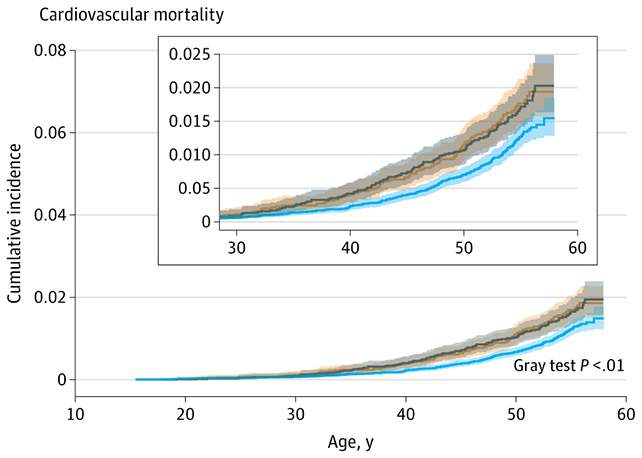Researchers have found that one key health reading taken at the age of 7 could have a significant impact on the risk of dying of cardiovascular disease (CVD) decades later: blood pressure.
In a new study carried out by researchers from institutions across the US, children with elevated blood pressure (in the 90 to 94th percentile) or hypertension (in the 95th percentile or above) were some 40 to 50 percent more likely to meet an early death because of CVD.
“We were surprised to find that high blood pressure in childhood was linked to serious health conditions many years later,” says epidemiologist Alexa Freedman, from Northwestern University.
Related: A Simple Daily Habit Could Help Lower Your Blood Pressure
That’s a big jump in risk, but it’s helpful to put these figures into some context. The researchers analyzed medical data collected on 37,081 children born in the US between 1959 and 1965, including a reading of their blood pressure at age 7. A follow-up survey was conducted decades later, in their early fifties.
Out of the tens of thousands of individuals in the sample, nearly 500 died of cardiovascular diseases, including a number without high blood pressure, so we’re not talking about huge numbers overall.
Blood pressure was only measured once at age 7 rather than being monitored throughout the lives of the participants, further limiting the reliability of any conclusions.

However, the increase in mortality risk is notable enough to make the findings worthy of future investigation, highlighting the importance of cardiovascular health even at a very young age.
“High blood pressure in children can have serious consequences throughout their lives,” says Freedman. “It is crucial to be aware of your child’s blood pressure readings.”
A host of factors contribute to CVD, so it’s worth noting that 359 of the individuals studied were from families that had multiple children involved in the research. The results among children with the same family background were similar to the overall figures, suggesting that blood pressure is key rather than diet or living environment.
Further studies could take into account additional influences on CVD risk, such as oral hygiene and genetic factors, investigating factors that might have an early impact.
The blood pressure data for this study had been gathered in the 1950s and 1960s – children today likely face different pressures in terms of their health and well-being. Studies have shown that exercise, diet, and stress can all play a part in blood pressure readings.
These findings are presented in a research letter, which provides a very brief summary of the study. However, it highlights another strong link between childhood health and adult health, which gives us opportunities to get good health and habits in place early.
As well as heightening the risk of CVD, high blood pressure has been linked to kidney disease, vision loss, sexual dysfunction, and atherosclerosis, where potentially harmful plaque builds up in the arteries.
“Our results highlight the importance of screening for blood pressure in childhood and focusing on strategies to promote optimal cardiovascular health beginning in childhood,” says Freedman.
The research abstract has been published in JAMA.
Source link


